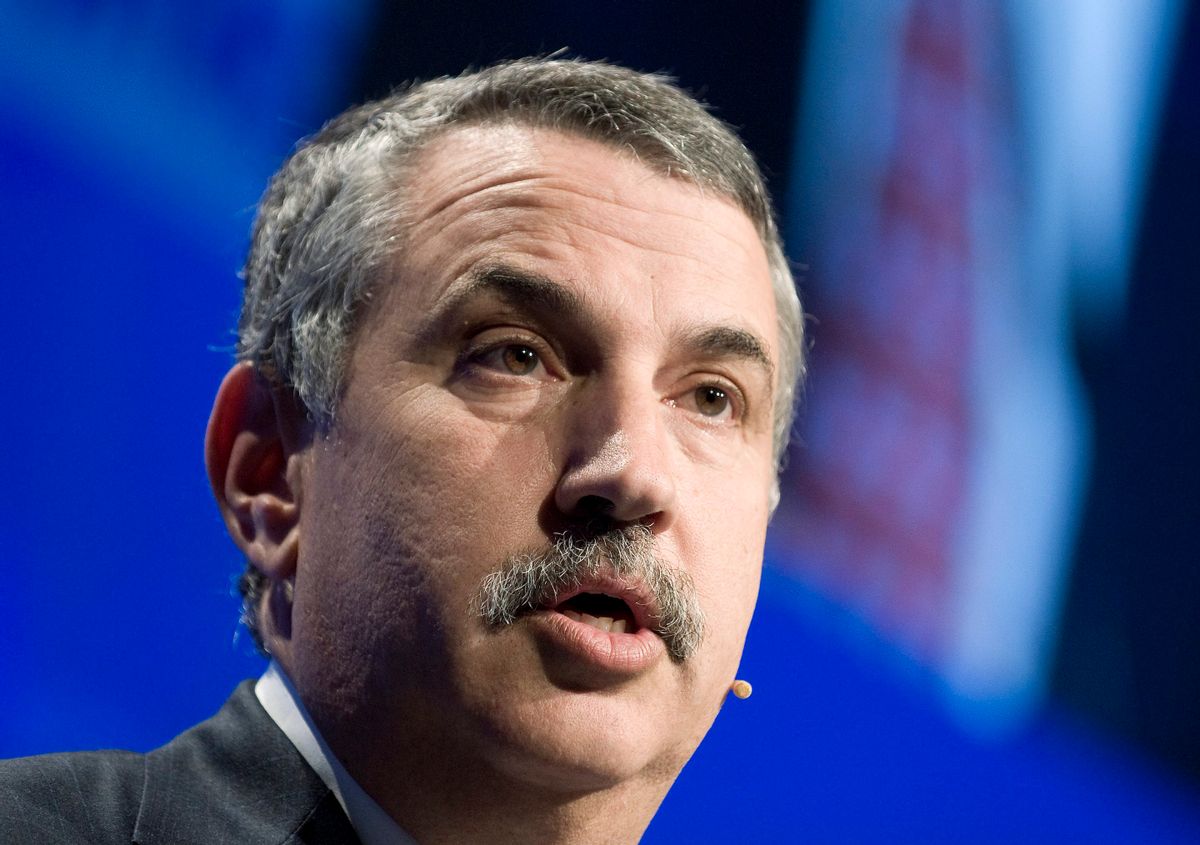As the nation stumbles toward what could become an epic replay of the 1968 presidential election, many in the Washington political media are hunting for cover. At least that’s a charitable explanation for the fad of sentimental bipartisanship among the nation’s deepest-thinking pundits.
Suddenly, everybody’s a “centrist,” seeking common-sense alternatives to the mad combativeness of Democrats and Republicans. “The Milquetoast Radicals,” New York Times columnist David Brooks calls them. Prominent among the membership are himself, New York’s Republican Mayor Michael Bloomberg, Brook’s colleague Thomas Friedman, Washington Post columnist Matt Miller, and lesser Op-Ed celebrities.
Partially funded by Starbucks CEO Howard Schultz, an organization called No Labels has set up shop in Washington. “We have no ideology. We instead are an attitude and approach to politics,” a former Democratic fundraiser among the founders told the Post’s Perry Bacon. Their ostensible goal is “to create the space so that our leaders can work across the aisle with one another.”
Who can oppose this brilliant idea? Yes, we should play well with others, share our cookies and juice boxes, then put out our little mats and have a nice quiet time. Later, we’ll watch "Sesame Street" together.
Too sarcastic? Here’s how Bacon describes “a campaign platform that most Americans would support” if only perennially feuding Washington politicians would let them vote on it:
Don’t call it "marriage," but give gay couples the same rights and responsibilities as heterosexual ones. Reduce the federal budget deficit with spending cuts, modest changes to Medicare and Social Security, and tax increases, particularly for the wealthy. Reform immigration laws so they don’t punish the children of illegal immigrants for their parents’ misdeeds, but also increase border security and make it harder for employers to hire illegal workers.
Sound familiar? Well, it should, because those are basically the Obama White House’s positions. However, there’s an important word missing on which the 2012 presidential election will probably turn: jobs
But I’m getting ahead of myself. In fairness to Bacon, he’s a political reporter assigned to cover No Labels. In Washington, ambitious scribes see phony centrism as the safest harbor, career-wise.
No such alibi excuses an opinion columnist like the Post’s Matt Miller. A one-time Clinton administration staffer, Miller imagined a third-party presidential candidate addressing healthcare as follows: “Democrats must accept a private insurance industry and Republicans must accept that some people can’t afford decent policies on their own.”
Huh? Here in the visible world, the 2009 “Affordable Care Act,” aka “Obamacare” (or, in Massachusetts, “Romneycare”), does exactly those things. Accept the private insurance industry? Obama’s sending them 50 million new customers. The left-wing, “socialist” healthcare plan many Democrats wish he’d delivered can be summarized in three words: “Medicare for all.”
Miller’s no dope. There’s zero chance he doesn’t know these things. Yet as his colleague Greg Sargent pungently observes, “One of the two parties already occupies the approximate ideological space that these commentators ... are describing as the dream middle ground that allegedly can only be staked out by a third party. That party is known as the ‘Democratic Party.’”
The real jokers in the bipartisan deck, however, are New York Times colleagues Brooks and Friedman. As NPR’s favorite Republican thinker, Brooks specializes in thoughtful columns explaining that nothing can be done — not because the GOP has gone stark, raving mad on taxes and committed itself to a kamikaze mission to destroy President Obama — but because not everybody agrees with him that slashing Social Security benefits during a jobless crisis is the mature thing to do.
It’s Friedman, however, who takes the fake-centrist prize. Dubbed “The Moustache of Understanding” by critics who find his sententious annoying, the best-selling author and ubiquitous TV talking head enjoys describing what he calls a “Grand Bargain” — the very phrase President Obama used to describe the $4 trillion compromise he offered GOP Speaker John Boehner during last summer’s debt-ceiling negotiations.
“The only way to dig out now,” Friedman opines “is a new, hybrid politics that mixes spending cuts, tax increases, tax reform and investments in infrastructure, education, research and production. But that mix is not the agenda of either party. Either our two parties find a way to collaborate in the center around this new hybrid politics, or a third party is going to emerge — or we’re stuck and the pain will just get worse.”
Has he been asleep in the woods? The “hybrid” proposals Friedman champions could have been borrowed almost verbatim from Obama’s speeches. His failure to acknowledge that reality is getting downright bizarre.
Esquire blogger Tom Junod thinks bogus centrists are mostly peddling snobbery: “It's simple,” he writes. “There is status in the center. There is the opportunity to look down at people of both political extremes.”
Maybe so. It’s also true that in a time of fear, they offer absolution.
See, there’s nothing you can do. So it’s definitely not your fault.



Shares